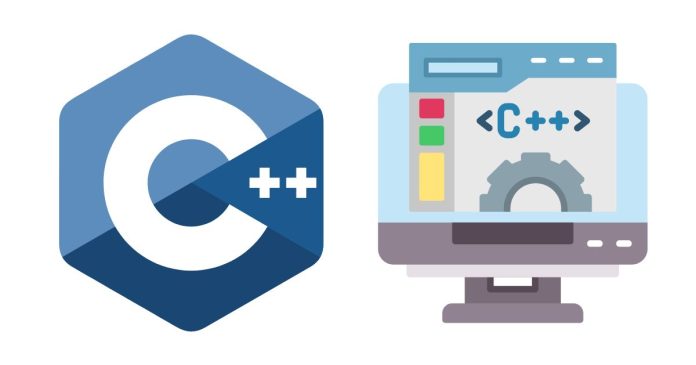Functional programming (FP) in C can be a bit tricky because C is primarily an imperative and procedural programming language. However, C does allow you to implement some functional programming principles with certain techniques and tools. Here are a few tools and approaches that can help you work with functional programming in C:
1. Functional Programming Techniques in Pure C
- First-Class Functions (using function pointers):
While C does not have native support for higher-order functions, function pointers can be used to pass functions as arguments, return functions from other functions, and implement callbacks, which are key concepts in functional programming.- Example:
#include <stdio.h> // Function that accepts a function pointer as an argument void apply(int (*func)(int), int value) { printf("Result: %d\n", func(value)); } // Example function int square(int x) { return x * x; } int main() { apply(square, 5); // Output: Result: 25 return 0; }
- Example:
- Immutability:
C doesn’t support immutability natively, but you can enforce it by following the convention of not modifying data once it has been assigned. This often involves usingconstfor variables and struct members to prevent their modification. - Recursion:
Functional programming often uses recursion instead of loops for iteration. In C, you can use recursion (though with caution due to stack overflow risks with deep recursion).Example (Factorial calculation using recursion):
#include <stdio.h> int factorial(int n) { if (n == 0) return 1; return n * factorial(n - 1); } int main() { printf("Factorial of 5 is %d\n", factorial(5)); // Output: 120 return 0; }
2. Functional Programming Libraries and Tools for C
There are also a few third-party libraries and tools that can help facilitate functional programming in C:
a. GLib
- GLib is a low-level utility library that includes various data structures and algorithms, and it has built-in support for functional programming paradigms. It provides things like:
g_functionwhich allows for higher-order functions.- Utilities for manipulating lists, maps, and other data structures in a functional way.
Example (using
g_slist_foreachfor iteration):#include <glib.h> #include <stdio.h> void print_element(gpointer data, gpointer user_data) { printf("%d\n", GPOINTER_TO_INT(data)); } int main() { GSList* list = NULL; list = g_slist_append(list, GINT_TO_POINTER(1)); list = g_slist_append(list, GINT_TO_POINTER(2)); list = g_slist_append(list, GINT_TO_POINTER(3)); g_slist_foreach(list, print_element, NULL); // Output: 1 2 3 g_slist_free(list); return 0; }
b. Libsodium
- Libsodium is a library focused on cryptographic functions but also includes functional-style abstractions for handling things like optional values, monads, and so on.
c. C++ with C Interfaces
- While C does not natively support functional programming concepts such as lambdas, currying, and monads, C++ (which is compatible with C) offers these features. You can use C++ to write functional code and then call the C++ code from C if needed.
Example (using a lambda in C++):
#include <iostream> #include <functional> int main() { auto square = [](int x) { return x * x; }; std::cout << square(5) << std::endl; // Output: 25 return 0; }
d. Functional Programming Libraries
fp-c: A functional programming library for C that provides some basic tools for implementing functional programming principles in C, such as:- Monads (for handling side effects).
- Option types (to represent values that might or might not exist).
- Functional data structures like immutable lists, and more.
Example (using
fp-cforOption):#include <fp.h> Option option = Some(42); // Option type that holds an integer
3. Tools to Encourage Functional Programming in C
clangwith Static Analysis: The Clang compiler comes with advanced static analysis tools that can help you avoid mutation and track side effects, which can encourage functional programming practices.- Valgrind: A tool that helps with memory management and avoiding issues like memory leaks or segmentation faults, ensuring that functional code doesn’t have unintended side effects.
- CMake: While not specifically for functional programming, CMake can be used to manage and organize C projects that integrate functional-style libraries more easily.
4. Pure Functional Languages Interfacing with C
Sometimes, instead of working strictly within C, you might want to interface C with functional programming languages, such as:
- Haskell: You can write performance-critical code in C and interface it with Haskell for functional programming.
- OCaml: This is a functional programming language that has a C interface.
5. Functional Programming Concepts in C
Even without dedicated libraries, C developers can use several FP techniques manually:
- Higher-Order Functions (using function pointers).
- Lazy Evaluation (using structs to delay computation until needed).
- Pure Functions (functions without side effects).
- Currying (manually implemented by passing functions as arguments).
Conclusion
While C isn’t designed for functional programming, you can implement some functional programming concepts using the following approaches:
- Use function pointers for higher-order functions.
- Implement recursion instead of loops.
- Use libraries like GLib to get functional-style abstractions.
- Leverage C++ if you need full-fledged functional support.
- Explore tools like fp-c to bring functional features to C.
Would you like more examples or deeper insights on any of these tools?


